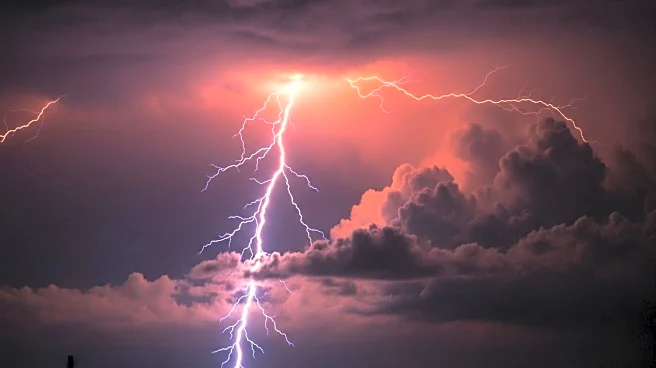What's Happening?
Ukraine's President Volodymyr Zelenskyy has pledged to continue retaliating against Russian attacks on Ukraine's energy facilities. This comes amid criticism from neighboring countries and Russian oil customers, Slovakia and Hungary, who have experienced disruptions in oil shipments due to Ukraine's attacks on the Druzhba pipeline. Zelenskyy, during a joint news conference with Slovakian Prime Minister Robert Fico, urged Slovakia to cease oil supplies from Russia. Fico, who recently met with Russian President Vladimir Putin, expressed differing opinions on the war's resolution and potential normalization of relations with Moscow. Zelenskyy also discussed security guarantees proposed by Ukraine's allies, which could involve deploying thousands of troops to Ukraine post-war. French President Emmanuel Macron announced that 26 countries have pledged postwar security guarantees, including international forces on land, sea, and air. However, Russian President Vladimir Putin warned that any Western troops in Ukraine would be considered legitimate targets for Russian strikes.
Why It's Important?
The ongoing conflict between Ukraine and Russia continues to impact European energy supplies and geopolitical relations. Zelenskyy's commitment to retaliate against Russian energy attacks highlights the persistent tensions and challenges in achieving peace. The disruption of oil shipments affects Slovakia and Hungary, emphasizing the broader economic implications for European countries reliant on Russian energy. The proposed security guarantees from Ukraine's allies signify international support for Ukraine, potentially altering the balance of power in the region. However, Putin's warning about Western troops being legitimate targets underscores the risk of escalating military confrontations. The situation remains complex, with potential consequences for European energy markets, international relations, and regional security dynamics.
What's Next?
The international community is likely to continue discussions on security guarantees for Ukraine, with potential deployment of troops post-war. Ukraine's allies may impose new sanctions on Russia to pressure an end to the conflict, as indicated by Canada's Prime Minister Mark Carney. The European Union faces challenges in balancing political decisions with economic impacts, particularly concerning the seizure of Russian central bank assets. Belgium's foreign minister, Maxime Prévot, warned of potential systemic shocks to European financial markets if such assets are confiscated. The situation requires careful navigation to avoid exacerbating economic instability while addressing geopolitical tensions.












